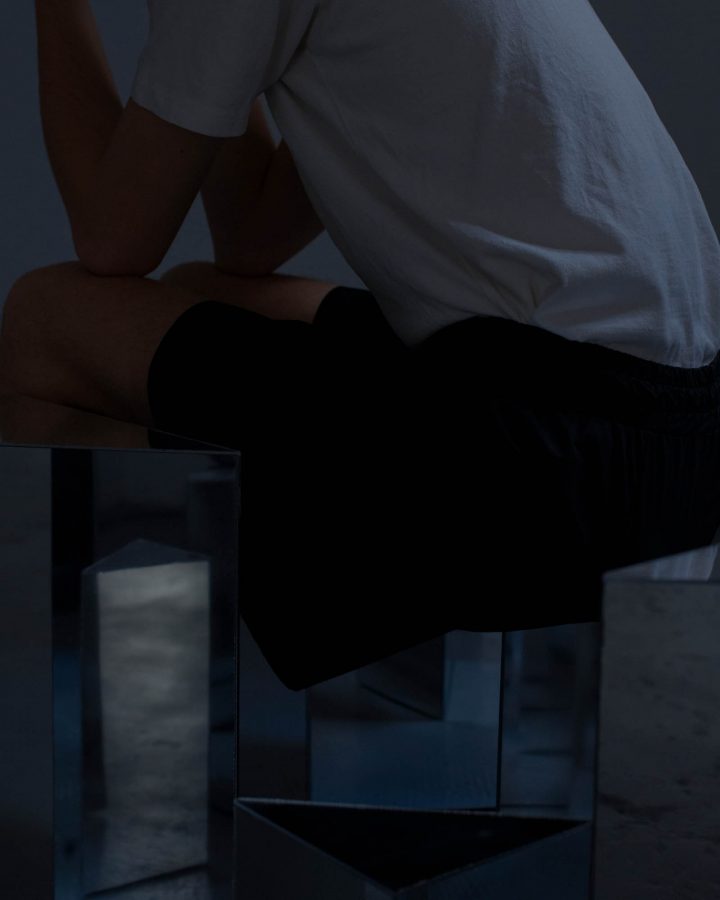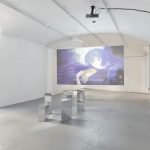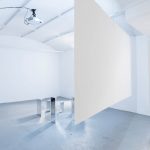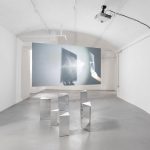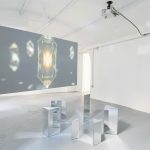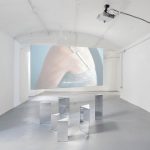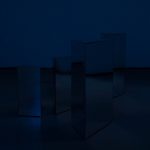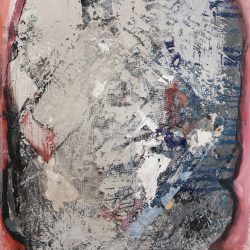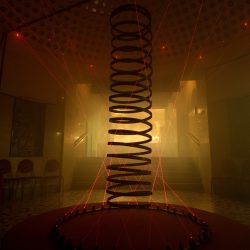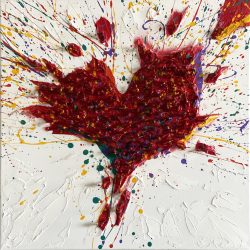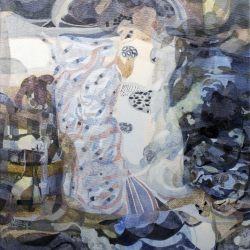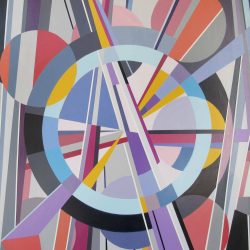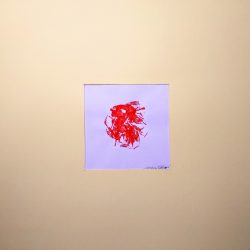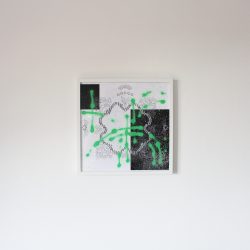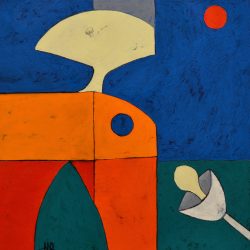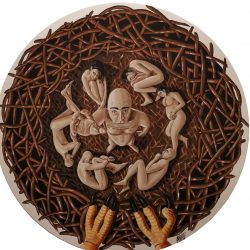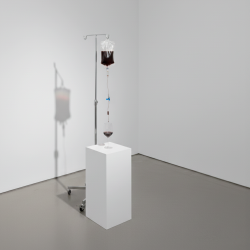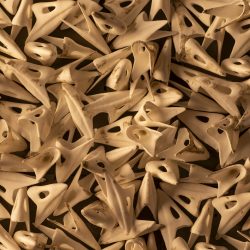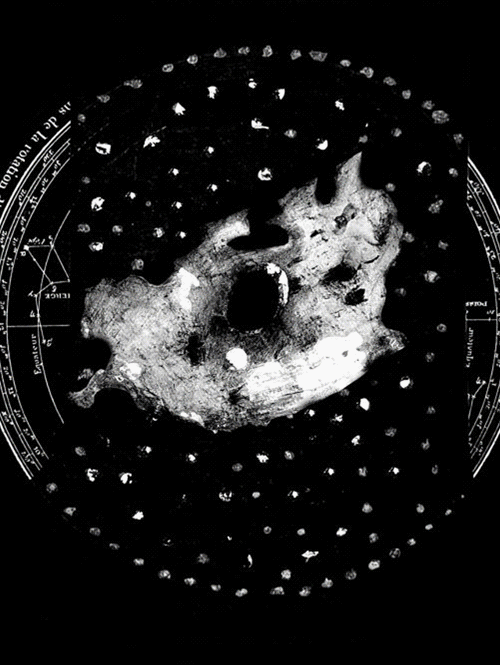work
A Multiverse for ‘A Soft Sonnet is All the Strength I Have’
| category | Installation |
| subject | Political / Social, Abstract |
| tags | |
| base | 150 cm |
| height | 60 cm |
| depth | 0 cm |
| year | 2021 |
‘A soft sonnet is all the strength I have’ is the title of the first personal exhibition of Camilla Salvatore’s work opened the 26th May by MASSIMO, via degli Scipioni 7, Milan. Camilla Salvatore is a director and a film producer.
For the occasion, the artist presents a work piece entitled ‘Permanent Exile’ (2020).
The short film talks of a young woman under the witness protection program, constantly split between the attempt to conciliate her psychological condition and the acceptance of her own life story.
The story talks of her life experience through her relationship with ‘absence’, thanks to her personal memory and her internal world, in a sequence of images, shadows and reflections, that shape a fragmented portray.
In the space:
Inside MASSIMO’s space, the film reveals itself to the spectator. The sound fills the space, welcoming the viewers. The images of the video are reflected on the surfaces of a series of prisms designed by Martina Taranto. These objects are placed in front of a projection screen, initially hidden from the sight. These elements oscillate between the visible and the invisible, and the material essence of the objects, their shapes, are dematerialized, through the reflected images of the surrounding reality. The video is projected on a suspended panel, in a dark environment, to create an intimate dimension for the viewing.
(Text extracted and translated from MASSIMO’s Italian press release.)
A Multiverse
For this design intervention, the artist wanted to create an invisible presence in the space, something that could be the personification, and at the same time, the representation of the intangible essence of the person to whom the movie is dedicated and inspired by. The protagonist says she exists in an ideal form, dematerialized, her pain constantly destroys and deconstructs her life and her physical identity. The mirrors and the sharp shapes have been chosen to communicate these features of her life experience. Through their shape and the nature of material, the prisms decompose the surrounding space and the story projected on the panel. The sensuality of the mirrors and the diversity in size and height of the prisms allow the viewers to be immersed in a forest of images and a multitude of percepted lives.
For the occasion, the artist presents a work piece entitled ‘Permanent Exile’ (2020).
The short film talks of a young woman under the witness protection program, constantly split between the attempt to conciliate her psychological condition and the acceptance of her own life story.
The story talks of her life experience through her relationship with ‘absence’, thanks to her personal memory and her internal world, in a sequence of images, shadows and reflections, that shape a fragmented portray.
In the space:
Inside MASSIMO’s space, the film reveals itself to the spectator. The sound fills the space, welcoming the viewers. The images of the video are reflected on the surfaces of a series of prisms designed by Martina Taranto. These objects are placed in front of a projection screen, initially hidden from the sight. These elements oscillate between the visible and the invisible, and the material essence of the objects, their shapes, are dematerialized, through the reflected images of the surrounding reality. The video is projected on a suspended panel, in a dark environment, to create an intimate dimension for the viewing.
(Text extracted and translated from MASSIMO’s Italian press release.)
A Multiverse
For this design intervention, the artist wanted to create an invisible presence in the space, something that could be the personification, and at the same time, the representation of the intangible essence of the person to whom the movie is dedicated and inspired by. The protagonist says she exists in an ideal form, dematerialized, her pain constantly destroys and deconstructs her life and her physical identity. The mirrors and the sharp shapes have been chosen to communicate these features of her life experience. Through their shape and the nature of material, the prisms decompose the surrounding space and the story projected on the panel. The sensuality of the mirrors and the diversity in size and height of the prisms allow the viewers to be immersed in a forest of images and a multitude of percepted lives.



